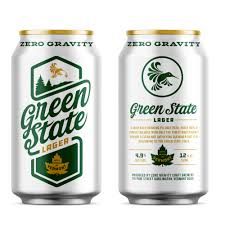 Last weekend in the woods and pastures of northern New England, one of the U.S.’s classic, longstanding 100-mile races took place. The Vermont 100 Mile, long a staple of the summer ultrarunning calendar, has stood the test of time as one of the great ultra events in the U.S. More often than not, this mid-July race has enjoyed pleasant, seasonable temperatures and mild humidity. However, it seems that every decade or so, the weather gods conspire to make it brutal. This year was perhaps the most brutal ever!
Last weekend in the woods and pastures of northern New England, one of the U.S.’s classic, longstanding 100-mile races took place. The Vermont 100 Mile, long a staple of the summer ultrarunning calendar, has stood the test of time as one of the great ultra events in the U.S. More often than not, this mid-July race has enjoyed pleasant, seasonable temperatures and mild humidity. However, it seems that every decade or so, the weather gods conspire to make it brutal. This year was perhaps the most brutal ever!
Most longtime Vermont 100 aficionados remember the 1999 race edition which had a record-high dropout rate of 55% and one of the slowest, but most impressive, finishing times in history by legendary runner Kevin Setnes who won that year at the age of 45 in a time of 16:53. This year, 20 years to the day later, the temperature and humidity was even higher and the overall carnage even greater.
In the week leading up to the race, runners, crews, and pacers watched as the forecasted temperatures and humidity levels continued to skyrocket. By midweek, race director Amy Rusiecki emailed the participants to prepare them for the worst. She even went so far as to call all of the country stores along the race route (and there are a lot of stores!) to advise them to stock up on more ice than usual. When race morning dawned, it was clear that it was going to be a tough day. Race-day temperatures exceeded 98 degrees Fahrenheit and heat indices exceeded 112 degrees Fahrenheit the mid- to late afternoon.
Early on in the day, many runners started out quickly, hoping to beat the heat in the relative coolness of the morning hours. This strategy would prove to be ill-advised as ultimately just about half of the runners would drop out of the race. Of the 321 starters, a mere 157 finished. That’s a finishing rate of 49% which is second lowest in race history and exceeded only by the 45% of 1999. By comparison, the 2018 Vermont 100, held under more typical conditions, had a finishers’ rate of 77%. Clearly, the 2019 race was one for the ages and as many have said, just finishing it was a victory.
All of this makes Gediminas Grinius’s winning time of 16:01 even more extraordinary, especially after his sub-16-hour sixth-place finish at the Western States 100 just three weeks prior. In addition, only five men broke the 20-hour barrier, a mere 10 women broke the 24-hour barrier, and Rusiecki gave out just 37 sub-24-hour buckles, the fewest in race history. Even in 1999, 45 runners got in under that 24-hour barrier.
What all this brought to mind for me is how much of an impact race-day conditions can have on an ultra. Sometimes, no matter how hard we train or how meticulously we prepare for whatever may come our way, Mother Nature bats last. When we venture into the world of ultrarunning, we know we need to expect the unexpected and prepare for the worst. But many times, even in doing that, we still fall short of our goals. I am sure that many of the 164 people who dropped out of last weekend’s race are dealing with disappointment and asking ‘what could have been.’ However, knowing how brutal it was out there should give them solace, for even having the courage to start, knowing what was in store for them, was indeed a victory of sorts and will hold them in good stead the next time.
Bottoms up!
AJW’s Beer of the Week
 This week’s Beer of the Week has to come from Vermont, one of the U.S.’s great beer states. Given the workmanlike nature of this year’s race, this is what I think is the state’s best ‘lawnmower beer.’ Zero Gravity Craft Brewery in Burlington, Vermont makes a no-nonsense classic lager called Green State Lager which is simple, tasty, and eminently pleasant. At a time in the craft-beer industry when everyone is trying to out do the next thing, it’s nice to see Zero Gravity going in the other direction.
This week’s Beer of the Week has to come from Vermont, one of the U.S.’s great beer states. Given the workmanlike nature of this year’s race, this is what I think is the state’s best ‘lawnmower beer.’ Zero Gravity Craft Brewery in Burlington, Vermont makes a no-nonsense classic lager called Green State Lager which is simple, tasty, and eminently pleasant. At a time in the craft-beer industry when everyone is trying to out do the next thing, it’s nice to see Zero Gravity going in the other direction.
Call for Comments (from Meghan)
- Were you at last weekend’s Vermont 100 Mile? How was the heat and humidity for you?
- How about that 1999 running of the race in its hottest conditions? Leave a comment to share memories you have of that event.
